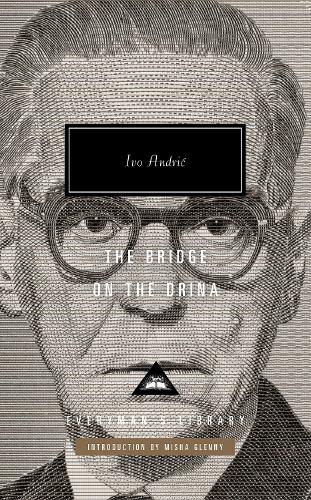
The Bridge on the Drina
(Hardback)
Publishing Details
The Bridge on the Drina
By (Author) Ivo Andric
Introduction by Misha Glenny
Everyman
Everyman's Library
3rd January 2024
2nd September 2021
United Kingdom
Classifications
General
Fiction
Fiction in translation
Narrative theme: sense of place
Local history
891.8235
Physical Properties
Hardback
464
Width 133mm, Height 212mm, Spine 31mm
556g
Description
In this masterpiece of historical fiction by the Nobel Prize-winning Yugoslavian author, a stone bridge in a small Bosnian town bears silent witness to three centuries of conflict. Introduction by Misha Glenny an award-winning British journalist who specializes in central and eastern Europe, global organized crime, and cybersecurity. He covered the Balkan Wars during the 1990s and is the auhor of numerous books, including The Fall of Yugoslavia and DarkMarket- How Hackers Became the New Mafia The town of Visegrad was long caught between the warring Ottoman and Austro-Hungarian Empires, but its sixteenth-century bridge survived unscathed--until 1914 when tensions in the Balkans triggered the first World War. Spanning generations, nationalities, and creeds, The Bridge on the Drina brilliantly illuminates a succession of lives that swirl around the majestic stone arches. Among them is that of the bridge's builder, a Serb kidnapped as a boy by the Ottomans; years later, as the empire's Grand Vezir, he decides to construct a bridge at the spot where he was parted from his mother. A workman named Radisav tries to hinder the construction, with horrific consequences. Later, the beautiful young Fata climbs the bridge's parapet to escape an arranged marriage, and, later still, an inveterate gambler named Milan risks everything on it in one final game with the devil. With humor and compassion, Ivo Andric chronicles the ordinary Catholics, Muslims, and Orthodox Christians whose lives are connected by the bridge, in a land that has itself been a bridge between East and West for centuries.
Reviews
In high school, one Saturday, I started reading a book by the Yugoslav novelist Ivo Andric: The Bridge on the Drina. By the time I finished it something in me had shifted forever * New Statesman *
Despite its scale, what makes the book extraordinary is the tender insight with which it treats these individual lives, whether Catholic, Orthodox, Muslim or Jewish * Independent *
Author Bio
Ivo Andric (Author) Ivo Andric was born in 1892 in Travnik, Bosnia of Croat parents and grew up alongside Orthodox Christians, Moslems and Roman Catholics in Visegrad, the town on the banks of the Drina where his book is set. Until 1941 he served as a Yugoslav diplomat, then, placed under house arrest in Belgrade by the occupying Germans, Andric turned to writing. In 1961 he was awarded the Noble prize for literature. He died in 1975.
